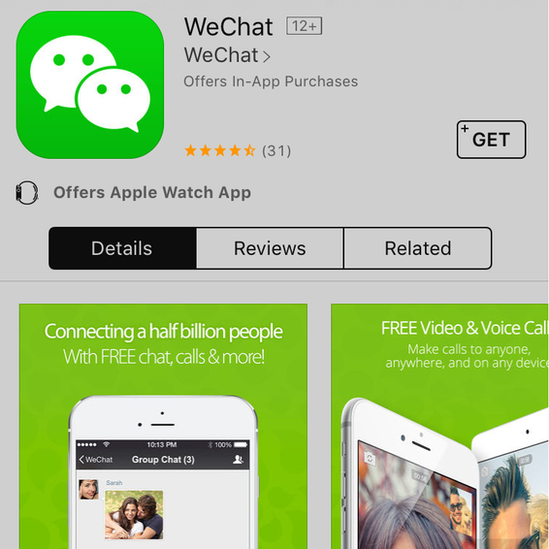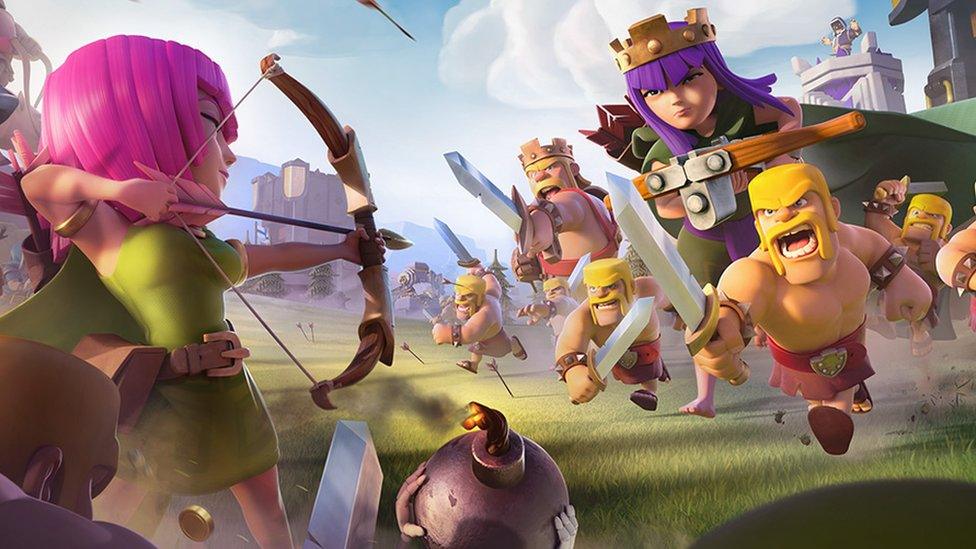WeChat owner Tencent sees profits surge
- Published

Tencent, China's biggest online entertainment and social network company, has reported a 47% jump in second-quarter profits.
Net income for the quarter stood at 10.9bn yuan ($1.6bn, £1.23bn), beating analysts' expectations.
Revenue grew at its fastest rate in more than three years, the firm said, climbing 52% to 35.7bn yuan.
Tencent is best known for its messaging app WeChat, which dominates the local market.
Market dominance
Out of China's three internet titans, the online gaming and social media company Tencent is the biggest, but also the least known in the West.
Tencent has not attracted the same global attention as its rivals: Alibaba, with charismatic millionaire entrepreneur Jack Ma at the helm, and Baidu, the local equivalent of Google.
However, its WeChat service is just about the biggest app there is in China. According to many Chinese users, it is way ahead of anything people use elsewhere in the world.
Its key element is the integration of a wide spectrum of online services all bundled in one single app.

WeChat is the clear market leader in China
WeChat offers just about everything from messaging to calling, mobile games, food deliveries and online shopping, payments, even down to splitting the bill when you're out with friends.
The app has more than 700 million people using it and has an unrivalled dominance in the Chinese market, but it is not Tencent's main source of revenue.
"Online gaming has long been the driver for Tencent and it's key to understanding the revenue mix," Duncan Clark, technology analyst and chief executive of consultancy BDA in Beijing, told the BBC.
Gaming giant
In June, it was announced that Tencent Holdings and its partners are to buy a majority stake in the Finnish maker of the Clash of Clans game.
The deal values Supercell at around $10.2bn (£6.95bn) and Tencent will buy the stake from Japan's SoftBank Group, which invested in Supercell in 2013.

Clash of Clans is only one of Supercell's successful games
Founded in 2010, Supercell's other games include Hay Day, Boom Beach and Clash Royale.
Like so many other Chinese tech companies, Tencent was initially labelled as being a copycat, filling the gap created by Beijing banning Western online companies to enter the Chinese markets.
Youtube was substituted by Youku, Google by Baidu, Amazon by Alibaba, while WeChat took the place of Whatsapp.
It was initially developed out of QQ which was a Chinese version of the desktop messaging pioneer ICQ.
And there is some truth in the assessment that these companies initially got their ideas from modelling themselves on a Western company.
But the days of mere copying are over, many of those companies have mastered the blueprint they were built on - and often have developed further from there.
"China has increasingly become the centre of mobile innovation," Mr Clark explains. "It's rather that there's a gap now in the West, because people tend to miss what's happening in China."
- Published21 June 2016
